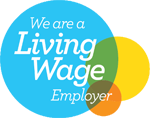During these challenging times, it’s important to take control of your finances yourself where possible, to find out where you stand and reduce what you spend, if you can. If you are in a financial crisis it is vital to seek support. Citizens Advice Mendip are well placed to offer support, have a help line 03444 88 96 23 and offer online sessions on citizensadvicemendip.org.uk. Money Saving Expert also have a useful round up of support. Alternatively use our ‘Budgeting in a crisis’ steps to help you take control.
Use this list to help build a picture of your expenditure:
Follow these steps to fill it in:
- Keep a diary – noting everything you spend each week.
- Look at your bank statements and note down weekly, monthly, quarterly or annual outgoings.
- Add an annual figure to each expense (multiply by 52 for weekly expenses, by 12 for monthly, 4 for quarterly)
- Add up all the figures in the annual column for a grand total and then divide by 12 to see what your total monthly expenditure is.
The next step is to decide which expenses are essential. Essential spending will include keeping a roof over your head (mortgage or rent), Council Tax, house insurance, utilities, food, keeping your car on the road if you need it to get to work, or public transport if you need to use that. Your TV licence is also something you must continue to pay. Each household is different and there may be other areas of expenditure that are essential for you.
You may be able to reduce the amount you spend on some of these essentials. Websites like the Money Saving Expert may be able to help you find cheaper suppliers.
Next, look at what your household spends on non-essentials. As a household/family, decide together which are the least important items at this time. Can you do without them or at least reduce the amount you spend on them?
Keep going until you can make your expenditure match your income.
You could go further and see if you can reduce your expenditure to 10% below your income, giving you an opportunity to pay off some debts with the excess, or save money in an emergency fund.
There are budgeting apps available that will enable you to view all of your income, outgoings and spending habits in one place to identify the best ways to save. The Money Saving Expert has a good list here: www.moneysavingexpert.com/banking/digital-banking
If you need help sourcing changes online then please ring our number 01373 465 757 to be matched with a volunteer who may be able to help.
For a more in depth guide, view our video and download the accompanying PDF:
Updated 17th May 2020.

